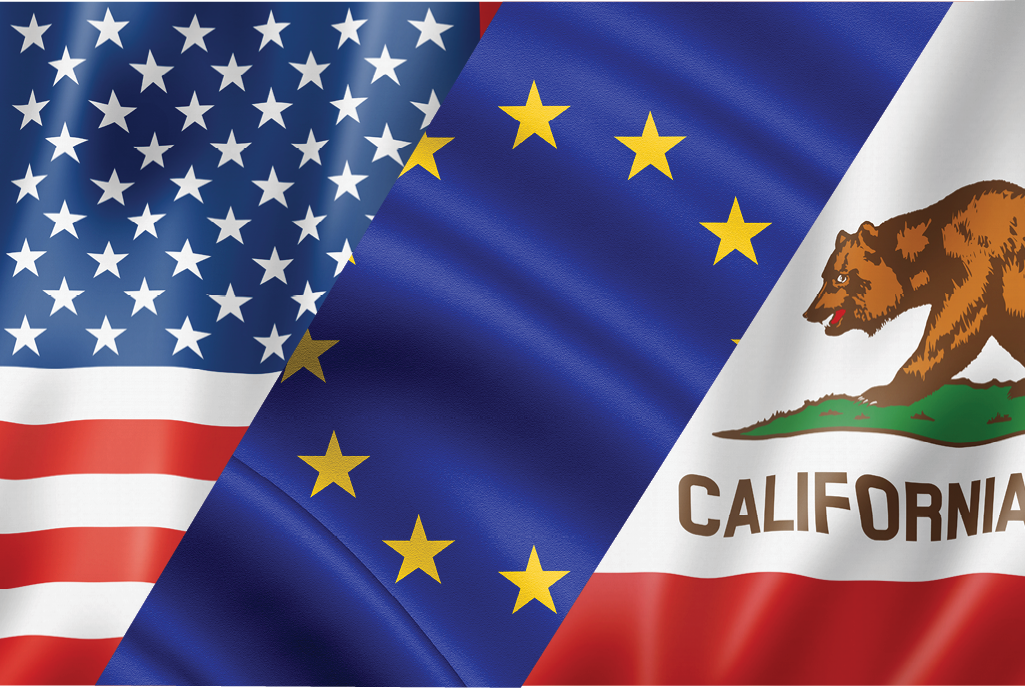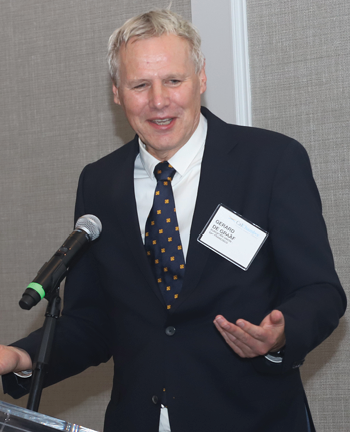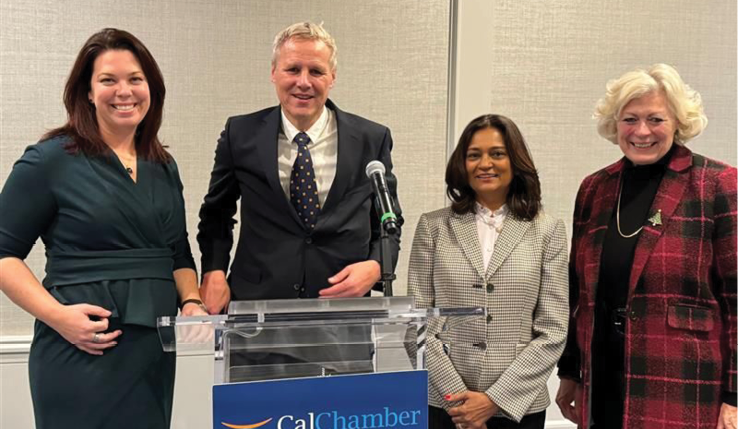
California is the farthest state away from Europe geographically, yet the closest in terms of values, a European Union (EU) representative told a California Chamber of Commerce breakfast gathering last week.
The speaker at the December 8 breakfast of the CalChamber Council for International Trade (CCIT) was Gerard de Graaf, Head of the EU Office in San Francisco and senior envoy for digital to the U.S.
de Graaf was among the 15 San Francisco area diplomatic representatives of California’s top trading partners who joined the CalChamber Board of Directors for dinner on Thursday, December 7. Also represented at the dinner were Canada, Japan, Taiwan, Germany, India, Singapore, the United Kingdom, France, Ireland, Italy, Switzerland, Spain, Chile and Ukraine.

Breakfast Remarks
de Graaf, who has worked more than 30 years in the European Commission across a wide range of policy areas, told his breakfast audience that he can’t remember a time when there wasn’t a crisis in the EU. But today, it’s as if Europe has “pulled 10 short straws.”
The multiple current crises, he commented, include the Russia-Ukraine war, the serious economic situation and high inflation, climate change, energy dependency and costs to consumers, loss of biodiversity, the spread of disinformation and challenges to democracy, health/recovery from the COVID pandemic, and high immigration flows into the EU.
As a result of the multiple crises it faces, Europe has never been more united, de Graaf declared. Although the situation in Europe is challenging, he said, “it’s not a mess…Europe is rising to the occasion.”

European Response
He provided positive examples of how Europe is dealing with the multiple crises. The Pew Research Center found in its latest survey that 66% of Europeans approve of what the EU is doing.
The EU did relatively well in handling the pandemic, he said.
Moreover, when it comes to energy, the statistics show how far Europe has come from just a year ago, when some 45% of European total gas imports came from Russia, before the Russia-Ukraine war precipitated an energy crisis.
Residents responded to requests to lower their thermostats, yielding energy savings of 20%, with the Eiffel Tower going dark as the most visible example of the community effort. In just three months, a supply of U.S. liquid natural gas was provided via floating energy installations on boats coming to Germany and elsewhere in Europe.
Moreover, there has been an “explosion” in renewable energy, both solar and wind. Renewables now account for 22% of the EU energy mix — including 42% of electricity generation (more than 70% in five EU countries). Energy from solar sources has doubled since 2018 and will triple in the next four years.
People see that the EU is not avoiding these difficult problems and appreciate the government’s determination to take the bull by the horns, de Graaf observed.
Technology is another strong area, he noted, citing that some 150 EU “unicorn” startup companies have been created in the last two years alone. “There is a wind of change in Europe,” he said. “Europe is on the move.”

